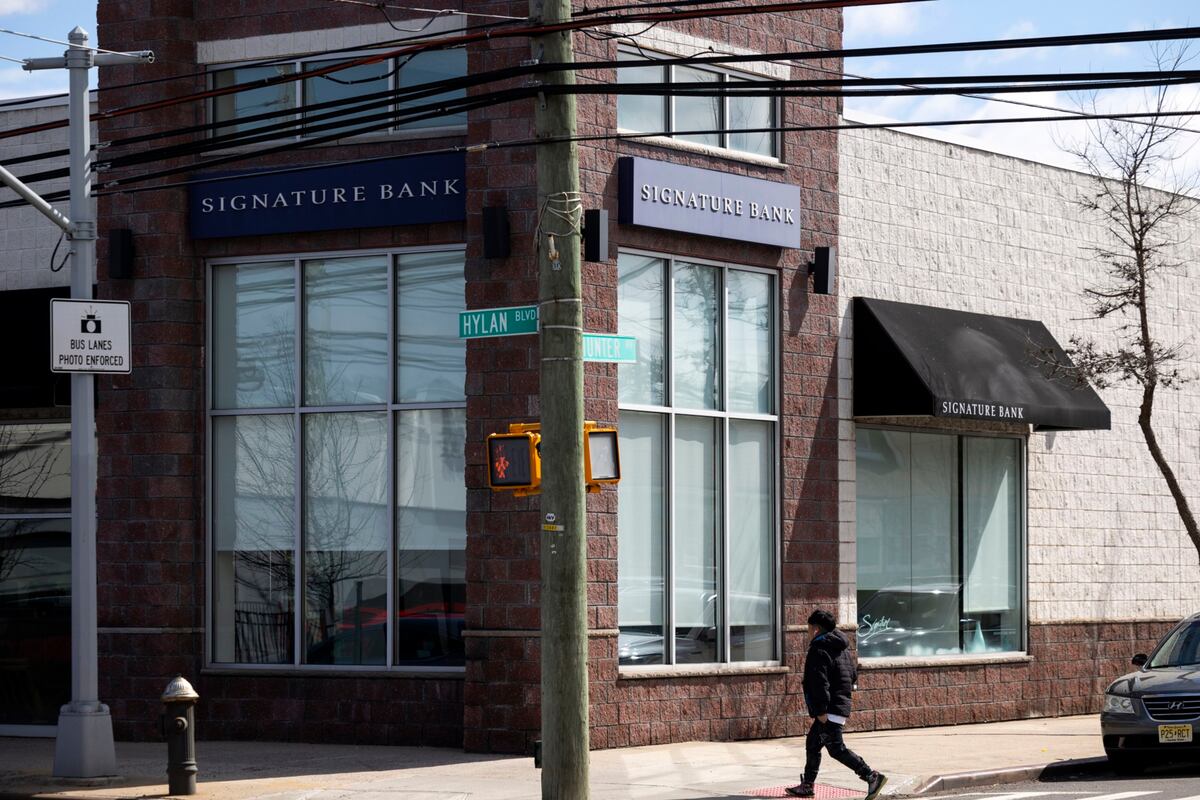This past weekend, US policymakers scrambled to bail out two mid-size banks: Silicon Valley Bank (SVB) and Signature Bank.
Yes, they were rescues.
I wish the Biden government would not try to claim otherwise.
And yes, investors ran out of money.
But legally, deposits are only insured up to a maximum of $250,000.
By deciding to refund all of their funds to all depositors, the federal authorities have done large account holders a great favor.
It is true that the losses, if any - it is not clear if either bank was insolvent or simply lacked the cash to meet a run on deposits - will not be offset by higher conventional rates. .
The money comes from the Federal Deposit Insurance Corporation, which, if necessary, will recover the funds by imposing higher fees on banks.
But those fees will be passed on to customers, so in reality, the ones who end up paying are the taxpayers.
More information
Silicon Valley Bank stars in the biggest fall of a bank in the US since the financial crisis
Now, has it been a bad decision?
I have heard four basic kinds of criticism.
One is ridiculous.
Two are doubtful.
But the last one worries me a bit, although I think it's probably wrong.
Let's start with the ridiculous.
On the right of the political spectrum, many have rushed to join the claim that the SVB went bankrupt because it was too socio-racially conscious, which is only slightly more absurd than the claim that having that kind of consciousness causes train derailments.
For what it's worth, no, the SVB was not distinguished from other entities by its concern for diversity or the environment.
And banks have been failing for centuries, long before human resources departments began including catchphrases about social responsibility in their mission statements and principles.
Let's move on to other more serious criticisms.
There is a reasonable argument, with which I largely agree, that the bankruptcy of the SVB has not posed as systemic a threat as the bankruptcies of various financial institutions, starting with Lehman Brothers, in 2008 did. Why bail out depositors?
Well, one answer is that, like it or not, the SVB had come to play a key role in what could be called the financial ecosystem of the technology sector.
In particular, if deposit holders had been left without access to their money, even temporarily, many tech companies would have been left unable to pay their payrolls and bills, potentially causing lasting damage.
The truth is that killing the cryptocurrency business would have been a public service, but there are also many good things that could be harmed.
In this sense, the SVB bailout has been somewhat similar to that of General Motors and Chrysler in 2009, which was also justified on the grounds that it would preserve a crucial piece of the economic ecosystem.
And while the auto bailout was harshly criticized, in retrospect it seems like the right move, even if it ended up costing taxpayers billions.
A third criticism is that the federal authorities have established the principle that all deposits are insured for all purposes, without imposing, as should be, stricter regulations on what banks can do with those deposits.
Consequently, they have created an incentive for the irresponsible assumption of risks by entities.
But policy makers have not explicitly guaranteed all deposits everywhere, and at least so far, we are seeing an outflow of funds from smaller banks to larger, more heavily regulated banks.
This may not please us;
whatever is said about financial institutions, they are not angels.
But overall, it appears that the system is restricting, not expanding, the risks it takes.
Which brings me to the criticism I take seriously, even though I think it's probably wrong: claims that bank failures will undermine efforts to control inflation.
It is true that the bankruptcies have caused investors to rethink the Federal Reserve's policy course: a rate hike at the next meeting, previously taken for granted, now looks uncertain, and markets are pricing in the possibility of cut rates, while two-year money prices (a good indicator of Fed policy) are plummeting.
Add to this that some sensible people I talk to warn of the financial dominance, in which the Fed places more priority on protecting Wall Street than on stabilizing inflation.
But considering how the banking system is reacting to the SVB affair, there are actually good reasons for the Federal Reserve to limit rate hikes, at least for a while.
The US central bank has tried to cool the economy.
Well, the increased sensitivity of banks to risk and the movement of deposits towards entities with more strict regulation will probably cool the economy even if the Fed does not raise rates.
Some financial bulletins even predict a recession.
And market inflation forecasts, if anything, have declined.
The fallout from the banking troubles has further clouded an already murky economic situation, and it will be time—perhaps forever—before we know whether policymakers made the right decision.
But right now I'm hearing a lot of doomsday rhetoric that in no way seems justified in light of the facts.
Paul Krugman
is a Nobel Prize Winner in Economics.
© The New York Times, 2023. Translation from News Clips
Follow all the information on
Economy
and
Business
on
and
, or in our
weekly newsletter
Subscribe to continue reading
Read without limits
Keep reading
I'm already a subscriber

